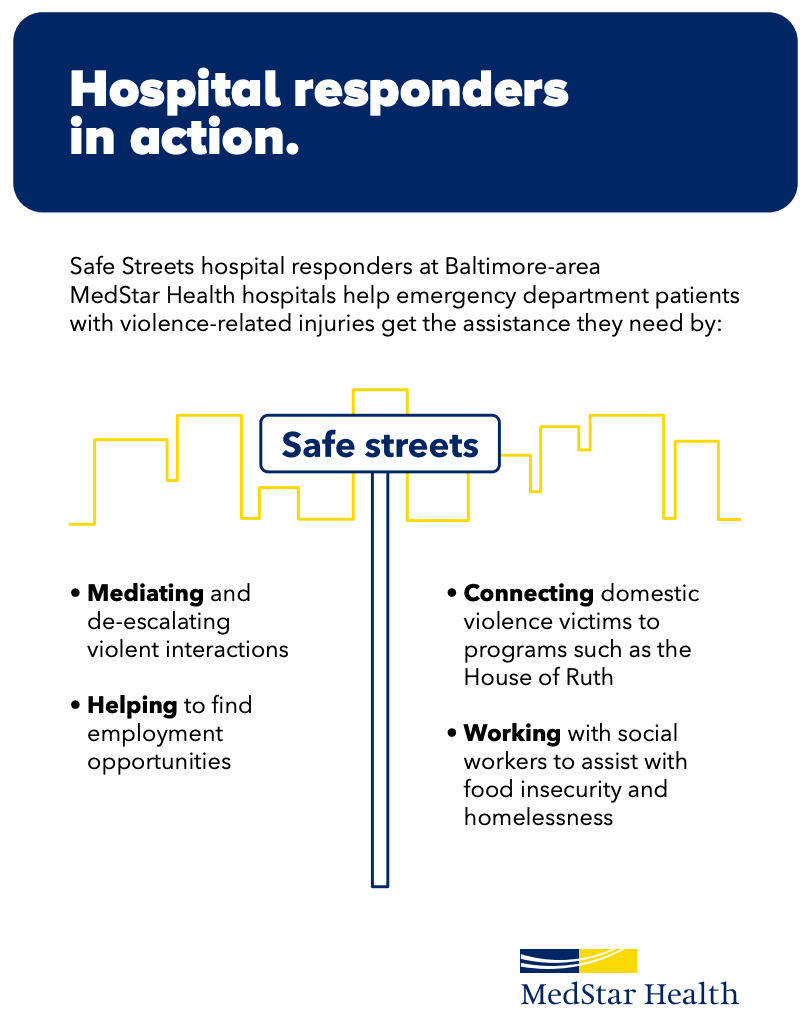Pictured above is Keith Brown, a Safe Streets hospital responder and lifelong resident of Cherry Hill in Baltimore.
A teenager with a gunshot wound. A man whose hand is bloodied and broken from a fist fight. A mother with a black eye that she claims came from a fall. On any given day in the Emergency Department (ED) at MedStar Harbor Hospital, Keith Brown could encounter a patient in need of his intervention and help.
As one of two hospital responders, Brown is called when a patient admitted with a violence-based injury agrees to talk with someone who could help. In this case, that someone isn’t one of our medical professionals—but instead a neighbor, a peer and a trusted face in the community.
“I just try to be there and let them know that I can help,” says Brown, 45, a lifelong resident of Cherry Hill, the Baltimore community that neighbors MedStar Harbor Hospital. “I tell them that I was once where they were.”
Brown says he was once “part of the problem” as a young man heavily involved in street violence. As a result, he was shot nine times and spent years in jail before starting a new chapter in his life.
“Now that I’m older and in a position to do better, I want to reach out to help the kids out there who need it,” he says. “I want to be that example in the community.”
Find care now
If you are experiencing a medical emergency, please call 911 or seek care at an emergency room.
The hospital responder position was created in 2018 in partnership with the Safe Streets Baltimore program to help our MedStar Health Baltimore-area hospitals play a greater role in eradicating the cycle of violence, says Elizabeth Sebastiao, regional program manager for Community Health.
“Given their backgrounds and their connections within the community, our hospital responders are many times better suited to step in, get a conversation going, and get to the root of how they got their injury,” she says. “From there, they can help connect the patient to the resources they need.”
Hospital responders work with other members of the Safe Streets team, as well as social workers, to help patients and community members access employment assistance, skills training, domestic violence counselors, and programs to secure food, transportation, and housing.
Brown recalls a young man who had spent much of his life in and out of prison, at one time serving a nine-year sentence for a violent crime.
“Every time he would get out of prison, he would get in trouble again,” he says. Until one day, using the mediation skills he’s acquired on the Safe Streets team, Brown had a heart-to-heart conversation with the young man that proved to be the turning point. “After that conversation, I put him in touch with a trucking company that needed delivery drivers. A year later, he was starting his own delivery business.”
Brown says it’s stories like this that make his career so rewarding. “I would be doing this even if it wasn’t my job,” he says. “Because you never know if that one conversation you have with someone is the one thing that could change everything.”














